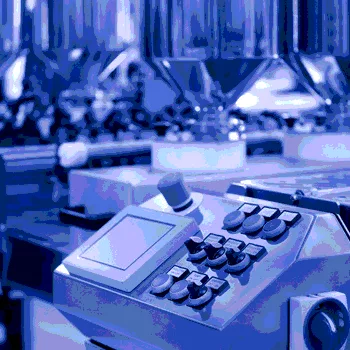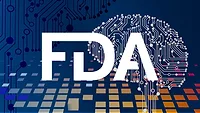FDA Outlines Smarter Food Safety Blueprint with Plans to Leverage New and Emerging Technologies

On April 30, 2019, acting U.S. Food and Drug Administration (FDA) Commissioner Norman E. “Ned” Sharpless, M.D., and Deputy Commissioner for Food Policy and Response Frank Yiannas unveiled FDA’s “New Era of Smarter Food Safety” initiative, the purpose of which is to implement certain Food Safety Modernization Act (FSMA) requirements using new and emerging technologies.[1] Specifically, FDA has committed to the development of a “Blueprint for a New Era of Smarter Food Safety” and will be holding a public meeting later this year, during which it will receive testimony from stakeholders. Through this collaborative effort, FDA is planning to develop strategies to address three core issues: food traceability; digital technologies; and evolving food business models.
By way of background, FSMA, which President Barack Obama signed into law on January 4, 2011, was Congress’s response to significant public health concerns regarding the rise of foodborne illness in the United States. FSMA is intended to strengthen the nation’s food safety system by shifting from reaction to prevention; it provided FDA with new enforcement authorities designed to achieve higher rates of compliance with prevention- and risk-based food safety standards and to better respond to and contain problems when they do occur.[2] The law also gave FDA important new tools to hold imported foods to the same standards as domestic foods, and directed the agency to build an integrated national food safety system in partnership with state and local authorities.[2]
FDA views the “New Era of Smarter Food Safety” plan as the next step in its implementation of FSMA, through which it can identify:
A process to digitally track food through the supply chain in a similar manner to tracking packaged goods. This will allow the origin of contaminated food to be traced swiftly; access to this information will not only be useful in responding to an outbreak but also in performing analysis to prevent future incidents.
New technologies that can be used to create transparency in the food system and provide consumers with information about where their food came from, how it was produced, and if it is subject to an ongoing recall. To accomplish this, FDA is specifically considering technologies such as distributed ledgers, sensors, the Internet of Things, and artificial intelligence (AI).
The appropriate standard of care in evolving business models such as e-commerce of food. The e-commerce food delivery system, and particularly, the “last mile” delivery of food on bikes and cars, presents brand new food safety challenges for federal, state, and local governments to consider.
Although it remains to be seen which technology or technologies discussed above, if any, FDA will mandate, it is possible that any of the approaches noted could significantly enhance traceability in the food supply chain. For example, imagine being able to digitally track produce throughout the supply chain. In October 2018, IBM launched a blockchain produce tracker called the IBM Food Trust.[3] It has been reported that the technology allows for growing, processing, and transportation information to be traced and shared across the industry, and that the solution can “reduce the checking time for provenance from days or weeks to seconds.”[3] The near real-time availability of such information could certainly assist in an ongoing recall, and could possibly help to prevent future recalls.
As stakeholders well know, compliance is not cheap. The benefits of enhanced food safety, aside, FSMA compliance has been an expensive proposition for the agricultural, food, and beverage industries. As it considers weighing in on the smarter food safety docket at FDA, one thing that industry will want to evaluate is what additional costs it will have to bear in order to adopt the technology or technologies FDA is considering.
Until the agency’s public meeting, which has not yet been announced, stakeholders might start to notice some changes at ports of entry. In its late April 2019 food safety announcement, FDA outlined its plants to conduct a pilot that will leverage AI and machine learning to enhance their review of imported foods to ensure that such products meet U.S. food safety standards. FDA’s thinking behind this pilot is based on the number of import food lines, which is increasing each year, and the need to apply predictive and analytical tools to help ensure that the agency and the U.S. Customs and Border Protection are targeting the greatest risks to protect consumers.
We are continuing to monitor FDA’s activity in this area, and will issue updates on our Regulatory Roundup blog,[4] as appropriate.
Jonathan Havens, Esq., is a partner at Saul Ewing Arnstein & Lehr LLP in Baltimore, MD and Washington, D.C., where he is the chair of the firm’s Food and Beverage Practice. Jonathan, a former FDA regulatory counsel and former U.S. Senate and U.S. House of Representatives legislative aide, counsels clients on regulatory, compliance, enforcement, and transactional matters related to products regulated by myriad federal and state agencies. Rebekah Nickerson is a summer associate at Saul Ewing Arnstein & Lehr LLP in Baltimore, MD, and is a rising third-year student at the University of Baltimore School of Law.
References
1. www.fda.gov/news-events/press-announcements/statement-acting-fda-commissioner-ned-sharpless-md-and-deputy-commissioner-frank-yiannas-steps-usher.
2. www.fda.gov/food/food-safety-modernization-act-fsma/background-fda-food-safety-modernization-act-fsma.
3. www.supplychaindigital.com/technology/ibm-launches-its-blockchain-produce-tracker-ibm-food-trust.
4. www.saul.com/blogs/regulatory-roundup.
Looking for quick answers on food safety topics?
Try Ask FSM, our new smart AI search tool.
Ask FSM →








